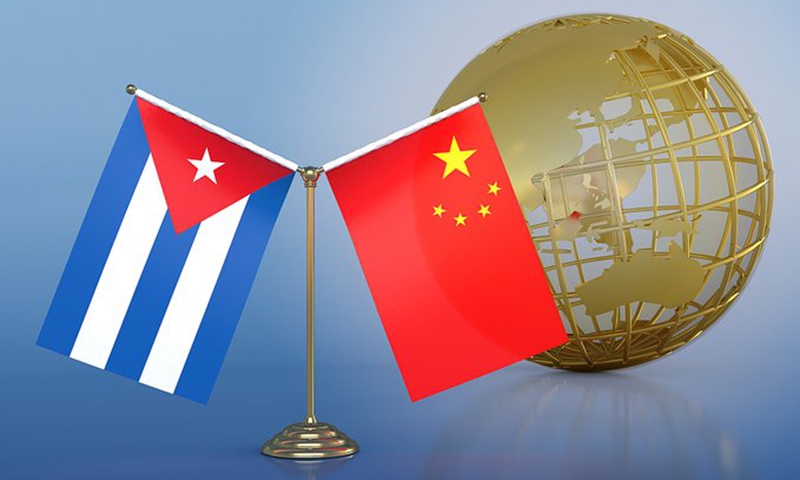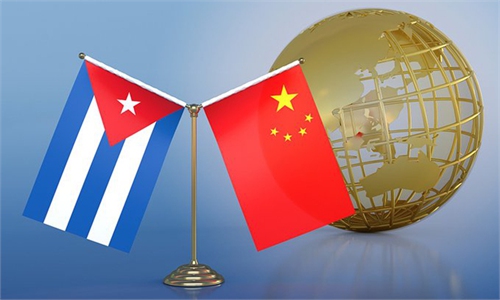
China Cuba File photo
China and Cuba have signed a cooperation plan to promote construction of the China-proposed Belt and Road Initiative (BRI), injecting momentum for further collaboration by leveraging the complementary advantages of both parties and for cooperation between China and Latin America.
He Lifeng, head of the National Development and Reform Commission, China's top economic planner, and Cuban Deputy Prime Minister Ricardo Cabrisas, signed the document, marking the effective implementation of the memorandum of understanding signed in 2018, when Cuba officially joined the BRI.
The document clarified the key cooperation content and projects for China and Cuba under the BRI, including infrastructure, technology, culture, education, tourism, energy, communications and biotechnology, which are in line with Cuba's development plans for the short and long term. It also proposed a timetable and roadmap.
The Embassy of Cuba in China said the cooperation plan marks a milestone in bilateral economic relations in 2021.
The signing of the plan between China and Cuba shows that the two countries have accelerated their cooperation and highlighted China's principle of mutual benefit on the basis of equality toward countries in Latin America, especially after the resumption of diplomatic relations between China and Nicaragua, which has further strengthened the relationship between China and Latin America, Zhou Zhiwei, a research fellow on Latin American studies at the Chinese Academy of Social Sciences, told the Global Times on Sunday.
Zhou noted that China and Cuba have strong economic complementarity, so the new document will help Cuba's economic recovery and improve local livelihoods, as well as promoting cooperation between China and Latin America in tourism and energy.
"Cuba is rich in mineral and oil resources, and is a major source of nickel ore for China. The country also has large potential for development in agriculture and tourism," he said.
China and Cuba have achieved very positive results in energy cooperation in recent years. In terms of traditional energy, Chinese companies have carried out related cooperation projects in Cuba. In the new-energy sector, including wind power and photovoltaics, cooperation has been enhanced.
Cuba, among other nations, became a member of the BRI energy partnership in October, according to the National Energy Administration.
The inclusive and newly expanded partnership network now has 32 members and aims to promote energy cooperation in BRI markets as countries pursue a low-carbon transition.
Energy has always been the focus of Cuba's socioeconomic development plan. Cuba has proposed that 24 percent of its electricity supply will come from renewable energy sources by 2030.
"China is actively maintaining the normal order of international relations and striving to promote common development across the world, unlike the US, which, under the banner of democracy, has imposed an economic embargo on some Latin American countries, interfering in their internal affairs and limiting cooperation among foreign companies," Zhou noted.
China is Cuba's largest trading partner in goods, and Cuba is China's second-largest trading partner in the Caribbean. Cuba exports mainly sugar and nickel to China. It imports a broad array of supplies, ranging from machinery and transportation equipment to raw materials and food.

